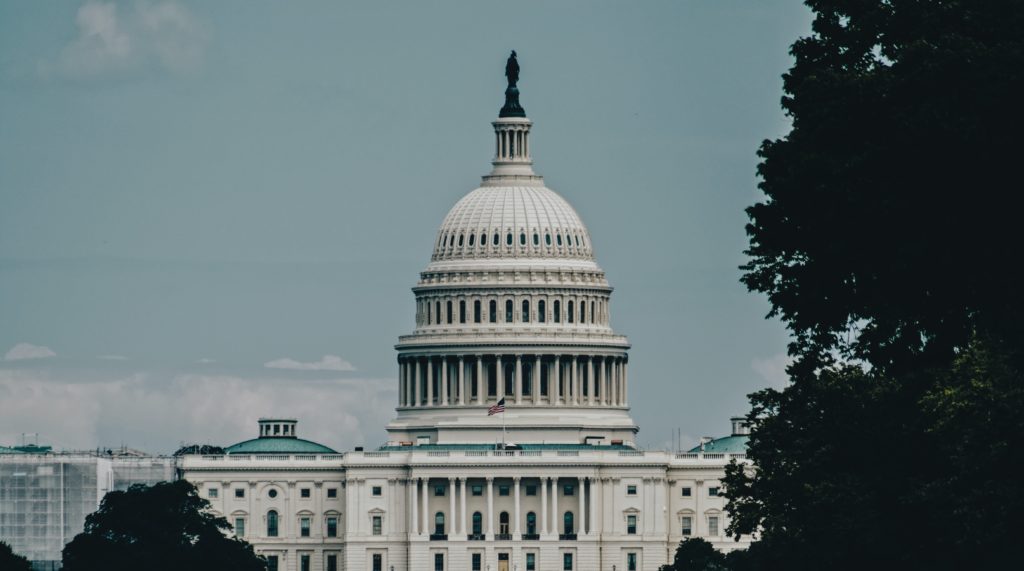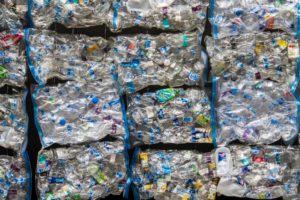
Blog
The Daunting Challenge and Huge Opportunities Ahead for Recycling
The United States is facing a packaging waste crisis. Whether you’re a Republican or a Democrat, a corporation or a non-profit, or anywhere in between, we all agree that something must be done and it will take everyone’s involvement.
Yesterday, I had the opportunity to deliver that message to Congress, and emphasize the need for a reliable, functioning U.S. recycling system. Joined by fellow witnesses Bridget Croke of Closed Loop Partners and Nina Bellucci Butler from More Recycling, we came before the Senate Committee on Environment and Public Works to give our perspectives. We all agreed that a strong, up-to-date recycling system — while not a silver bullet — is vital to meeting market demand for recycled material and reducing waste in our environment.
“As we examine the challenges facing America’s recycling efforts today, I hope we’ll begin a new discussion — a robust discussion, not just focusing on those challenges, but on the opportunities they bring with them to make planet earth a better home for all of us,” Ranking Member Tom Carper said to begin the hearing.
At a time when recycling should be increasing, it is disappearing across many parts of the U.S., as recycling programs cut back on accepted materials or slash programs altogether. Consumer confusion is a huge contributing factor to the United States’ low recycling rates, with nearly 10,000 individual recycling systems in America, each with different rules about what is recyclable and where and how it can be recycled. In his opening remarks, Chairman John Barrasso even commented on the recent changes to the recycling rules in his home of Casper, Wyoming, which is no longer accepting glass at the local recycling center.
“It’s interesting as we deal with this topic of recycling, what you can and can’t, and could and no longer can and what we should in the future,” Senator Barrasso said, citing the myriad of rules across different recycling systems. “I believe we have shared responsibility to keep recyclable materials and other waste out of the environment.”
The CPG industry recognizes its role in the waste crisis and is actively working toward smarter, more sustainable packaging. Packaging innovation, however, relies on a functioning recycling system and, today, that system is at a breaking point. Recyclable packaging ends up where it shouldn’t — in landfills, where valuable materials are no longer available for reuse, or, worse, polluting the environment. In order to achieve the more sustainable future we need, change is imperative.
Five Key Takeaways from the Hearing
1. The demand for recycled content is there. In addition to CPG, a range of consumer-facing industries have made aggressive commitments to dramatically increase the use of recycled content in packaging, apparel and other products. Yet the domestic supply of recycled plastics is only able to meet six percent of current demand. David Cornell, the former technical director for the Association of Plastic Recyclers, estimated that to meet future demand, the U.S. recycling rate for PET containers will need to jump to at least 70 percent — it’s not even close to halfway there today.
2. Government has a pivotal role to play. As Senator Carper noted, fixing the recycling system and reducing packaging waste is a daunting challenge. But we believe it’s also an opportunity to get big ideas on the table, and there’s a pivotal role for government to play in end market development, supporting jobs and encouraging a market for recyclables.
3. Baseline data collection is essential to addressing recycling challenges. If you asked me the best or worst states for recycling rates in the U.S., I couldn’t tell you. That’s because we don’t have any standardized, national reporting on recycling rates or even an agreed-upon definition of “recycling.” If we don’t know where recycling rates are high or even what the standard definition of recycling is, it’s impossible to understand where we should put resources. Accurate data is necessary for building domestic recycling infrastructure so we can process our packaging here at home, instead of relying on China or other countries to handle our recyclables. The federal government is poised to take on a leading role in this necessary first step, so that we can make informed decisions on what a common-sense, working recycling system looks like in America.
4. Smart investments will address the root issues and strengthen end markets. The U.S. recycling system needs smart investment in infrastructure to strengthen domestic end markets and increase the supply of cost-effective recycled material for use in packaging and other products. Throwing money at the problem won’t get us to a solution though. In order to address the root issues, recycling funding needs to be used to fix fundamental problems and drive intended outcomes. During the hearing, I flagged Consumer Brands’ Recycling Policy Platform, which suggests a range of funding levers that can be pulled when we know what we’re fixing.
5. No one will solve recycling alone. We need all stakeholders at the table — government, CPG, NGOs and more — to advance dramatic, wholesale changes to finally fix the broken system. No one industry alone can solve this massive problem. It will take all our efforts to reimagine recycling in the United States and find solutions that benefit the environment above all.
“Leading municipalities, recyclers, manufacturers and consumer brands are starting to partner together to establish and profit from a circular economy in the United States, where goods are continually manufactured using recycled materials collected from recycling programs in towns large and small,” Croke said during the hearing.
We need the recycling system to work. Today’s supply and demand challenges inhibit the good work many companies and NGOs are doing and limit the progress we can make. Coupled with consumer confusion, aspirational recycling and a multitude of other problems, fixing the recycling system won’t be an easy task. But we have to try — today — for the sake of our planet tomorrow.
Published on June 18, 2020



